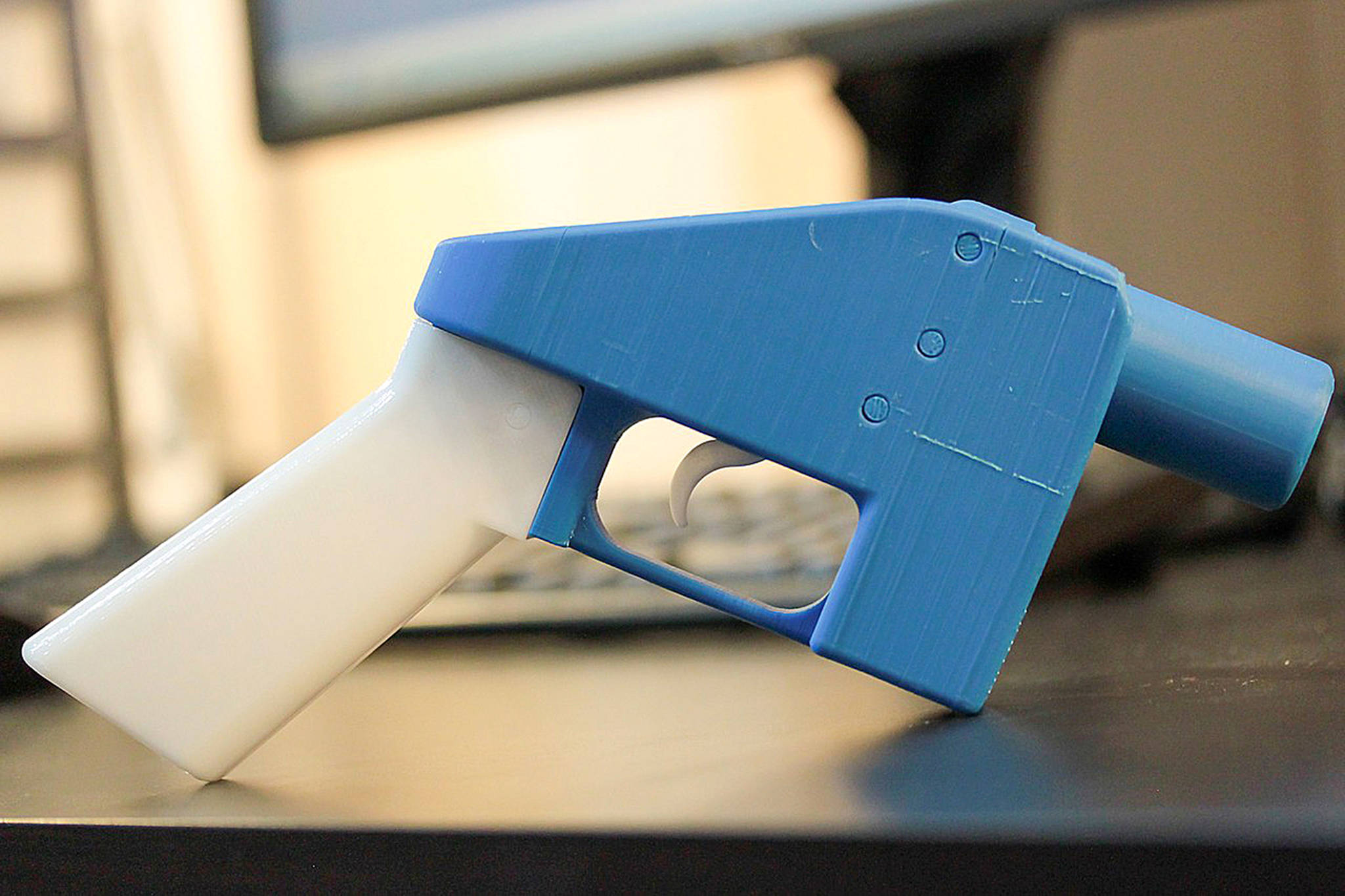Undetectable and untraceable firearms and their creation would be illegal in Washington state under proposed legislation. These types of firearms are commonly manufactured via 3-D printers and are often referred to as “ghost guns.”
The Senate Law and Justice Committee heard public testimony Tuesday on Engrossed House Bill 1739. The Senate version, SB 5061, passed out of the Law and Justice Committee in January, but did not move out of the Senate Rules Committee. Differences between the two bills were described as “non-substantive” by committee staff.
Rep. Javier Valdez, D-Seattle, is the prime sponsor of the bill, which was requested by Attorney General Bob Ferguson.
“This is really about ensuring that our people out there in the state of Washington feel safe,” Valdez said.
It’s important to get out in front of this problem with growing technology, said Valdez, citing a case where 3-D assault weapons were being distributed in New Jersey.
The bill defines undetectable firearms as those that cannot be detected by walk-through metal detectors that are commonly used at airports, or a firearm where the barrel, slide, cylinder, frame, or receiver would not generate an accurate image when examined by X-ray machines. Untraceable firearms are defined as any firearm (manufactured after the bill’s effective date) that cannot be traced by law enforcement via a serial number assigned by a federally licensed manufacturer or importer.
The bill also makes it a crime to help manufacture or assemble undetectable and untraceable firearms.
Bharat Shyam, a member of former Washington Gov. Christine Gregoire’s cabinet and an emerging technology investor, testified in support of the bill. Shyam also cited the New Jersey Attorney General’s statement on ghost guns.
“It’s really my job to understand emerging technology and the benefits and drawbacks of emerging technology, and I believe it’s your role to distinguish between these benefits and drawbacks and legislate accordingly,” Shyam said.
Pat Griffith from the League of Women Voters said the league supports the bill, calling it “common sense.” Griffith mentioned that these guns are untraceable and that those who fail background checks should not be able to assemble guns, thus circumventing Washington’s background check law.
Matt Vadnal, a former prosecuting attorney and representative from the Alliance for Gun Responsibility, also testified in support of the bill. Vadnal served for 30 years in the Army Reserve and is a former National Rifle Association member.
“During the present session, this Legislature can stop a recent technological development that is worse … than the widespread availability of semi-automatic firearms with large capacity magazines,” Vadnal said. “In Washington today, it is possible for an unlicensed individual to build a gun from parts they print on a 3-D printer or order online, all with no background check, no serial number, and no tracking.”
David Schirle, a concerned citizen, testified in opposition to the bill. Schirle argued that there was no way for a “law abiding” citizen to make a gun they manufacture themselves traceable.
Mike Silvers, a concerned citizen, testified in opposition of the bill by saying that guns without serial numbers are already illegal federally.
“You would have to have the best plastic available in a ball the size of a waste basket, and I mean a big waste basket, to contain that pressure for one shot. Anything smaller than that, you got a bomb in your hand,” Silvers said.
HB 1739 passed through the chamber on March 1 with 55 in favor and 41 opposed.
The bill is scheduled for executive session in the Senate Law and Justice Committee on March 28.
—
Emma Epperly is an intern with the WNPA Olympia News Bureau.


